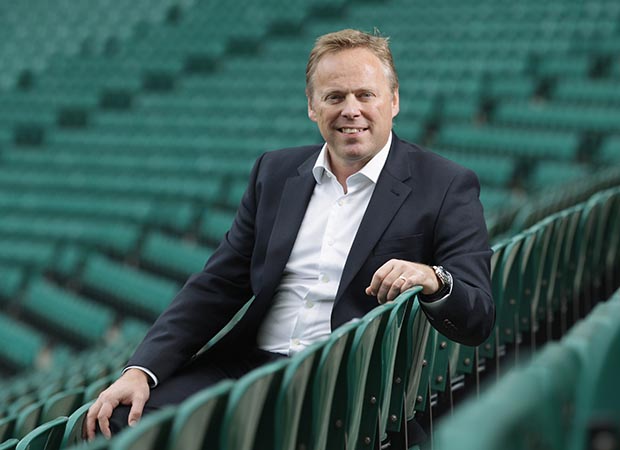The news that the RFU have appointed Steve Brown as CEO should bring a sigh of relief from the whole game because, for the first time in an age, they have chosen someone who actually follows rugby.
Ian Ritchie has overseen some of the biggest changes in our game and even managed to make a World Cup disaster seem like a victory by posting the biggest profits in that competition and the RFU’s history in the same year.
Probably the biggest change was the introduction of a foreign coach, Eddie Jones, who again seems to be a success and is adored by the Press, particularly for his off-the-cuff comments.
The latest one, that you can’t coach modern players you have to guide them, is a dandy.
Despite the fact that Ian Ritchie has done a good job in building the business of the Union, I feel that the grassroots have been let down as all efforts seem to be directed at making them into small businesses that happen to run a rugby team.
Most of the money loaned to help with improvements to facilities seems to be spent improving the facilities for anything but the game of rugby: a 3G pitch that can be played on and rented by other sports or an improved clubhouse that can double as a venue for parties or functions, all designed to make the clubs financially self-sufficient with no need to rely on the Union for anything – and that worries me.
Although I have to say anything that helps clubs survive in the harsh reality of a commercial world is a good thing but I feel that a divide within the game has grown wider and that the Union is fragmenting.
Rugby has always been known for its camaraderie to the degree that if you are a rugby player you feel you could walk into any clubhouse in the country and you would immediately have a bunch of mates to chat with over a pint – but I’m not sure that’s so true now.
Although the grassroots game still retains many of the old core values, the same is not true in the professional game where everything is dependent on money.
I feel the almost insular nature of professional sport is damaging the fabric of the game as each player and club compete for more money, whatever the cost to the game as a whole.
International players have always held a special place, partly because they were the same as every other player except they had achieved the ultimate the game had to offer – but now it is different.
Modern professional players are not like from those of the past and have few or no links to the rest of the game as many have never played at grassroots level.
In the amateur days, international players would regularly attend functions with grassroots players and share in the camaraderie of the game. Now, however, the professional players will only turn up if they are paid a fee.
In the professional game, players are detached even from their clubs and take a singular view of where they can get the most money. Nothing wrong with that, it’s a short playing career and so they must make as much as they can within a limited time, but it doesn’t engender loyalty and friendship even if the adoration remains.
As someone who follows the game, Brown will be aware of the fractures that are affecting it and the part that the RFU have played in creating those fractures.
The CEO is the most powerful position in the RFU and can direct the sport in any direction. Ritchie made the RFU a great business, it will be interesting to see if Brown can make it a great sport.
























